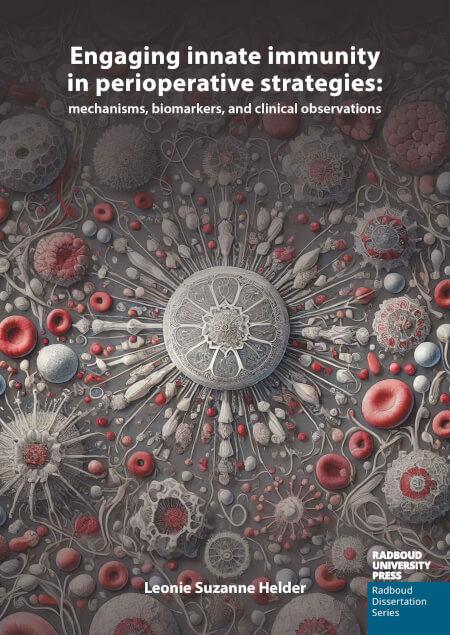Engaging innate immunity in perioperative strategies: Mechanisms, biomarkers, and clinical observations
Keywords:
Immunology, Peri-operative care, Trained immunitySynopsis
This thesis investigates the complex immune response to surgical stress, focusing on the interplay between tissue damage, anesthesia, and immune regulation. The research highlights how surgery triggers immune activation and suppression, with significant implications for postoperative complications, including inflammation, infection, and cancer recurrence. It explores the roles of inflammatory mechanisms, epigenetic changes, and metabolic adaptations in innate immune cells, and how these factors affect healing and host-defense against pathogens after surgery. Key findings demonstrate that surgery and anesthesia modulate innate immune functions, with factors such as pain and the release of DAMPs (Damage-Associated Molecular Patterns) playing significant roles. The research identifies critical mechanisms behind immune dysregulation, including mitochondrial dysfunction and changes in antigen presentation, impacting leukocyte function and immune homeostasis. This dysregulation can hinder recovery, leading to excessive inflammation or immune suppression, which increases risks for infections and delayed wound healing. The thesis emphasizes that while the surgical stress response cannot be fully prevented, its impact can be minimized through low-impact surgeries and strategic choices in anesthesia and medication. Furthermore, prehabilitation and trained immunity offer potential for enhancing immune resilience to surgical stress. The thesis discusses novel avenues for developing personalized therapeutic strategies and targeted interventions to monitor and reduce immune dysregulation, ultimately improving surgical outcomes and patient recovery.

Published
Series
Categories
License

This work is licensed under a Creative Commons Attribution-NonCommercial-NoDerivatives 4.0 International License.

